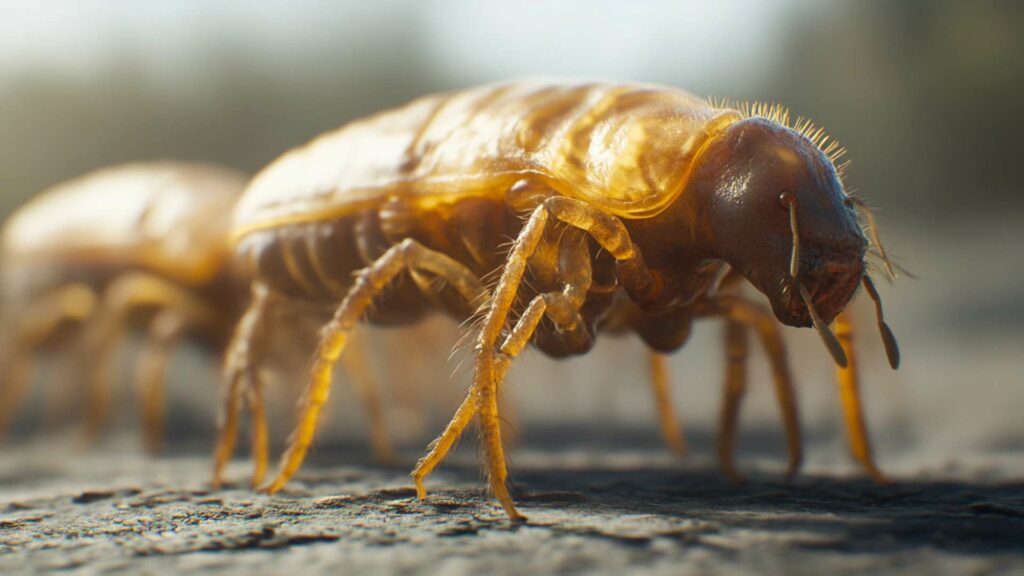Brief Overview of the Topic
Allergies and respiratory problems caused by mice are becoming increasingly common in society. According to scientific literature, exposure to mouse allergens can cause severe allergic symptoms, such as asthma attacks or allergic rhinitis. Due to high mouse allergen concentrations in certain areas, individuals that are at a greater risk of developing serious mouse allergies and respiratory problems include children, elderly people, immunocompromised individuals, laboratory animal workers and local pest control operators.
Importance of Understanding Allergies and Respiratory Problems Caused by Mice

It is crucial for individuals to understand the underlying causes of these health issues so they can take preventive measures as soon as possible. Unfortunately, many people fail to realize that they have been exposed to animal allergens until they experience severe symptoms. In order to prevent these issues from occurring or worsening over time, understanding how dust particles with mouse allergens affect the body’s immune system is essential.
The severity of allergies and respiratory problems caused by mice varies depending on the individual’s level of exposure. For example, some people may only experience mild hay fever symptoms after coming into contact with mouse allergens while others may develop allergies and more serious issues over time.
Therefore it is important for everyone to take steps towards avoiding exposure whenever possible. Overall, it is important for individuals that are at risk from being exposed to animal allergens like mice (such as laboratory animal workers) or those who suspect their symptoms are related should be tested via skin prick testing for allergy diagnosis so that appropriate treatment options can be determined before their conditions worsen any further.
Unwanted mice in your home can bring more than just a nuisance. Protect your health by understanding the health risks and diseases associated with mice. Explore our comprehensive guide on Uninvited Guests: The Hidden Health Risks And Diseases Lurking In Your Home’s Mouse Population to stay informed and take proactive measures.
What are allergies and respiratory problems?

Allergies and respiratory problems are common reactions to allergens present in the environment. Allergic reactions occur when the immune system overreacts to a substance that is not harmful to most people. Respiratory problems, on the other hand, refer to any condition that affects breathing or lung function.
Definition of allergies and respiratory problems
Allergies can manifest themselves in many forms such as allergic rhinitis (hay fever), asthma, or anaphylaxis. These conditions can be triggered by various allergens such as dust mites, pollen, and certain foods. In some cases, allergies can be life-threatening if not attended to promptly.
Respiratory problems refer to a wide range of conditions affecting the lungs including pneumonia, bronchitis, chronic obstructive pulmonary disease (COPD), and asthma. Asthma is a chronic condition affecting millions of people worldwide which causes inflammation and narrowing of the airways leading to symptoms such as wheezing, shortness of breath, coughing and chest pain.
Common symptoms
The symptoms of allergies can vary depending on the type of allergy but they generally include itchy eyes, runny nose or nasal congestion, sneezing, skin rashes or hives. Asthma symptoms may include wheezing or whistling sound while breathing out; coughing especially at night; shortness of breath; chest tightness; fatigue during exercise. Exposure leads to year-round symptoms for those biologically related with rodent allergy where inner city children are at greater risk due to living in proximity with rodents in older housing infrastructure where rodent allergens become trapped inside causing year round symptoms unresponsive conventional therapy for hay fever symptoms like antihistamines & nose sprays.
It is important for individuals experiencing any signs or symptoms related to allergies or respiratory problems to seek medical attention promptly. Diagnosing and treating the condition can help prevent it from becoming more severe.
How do mice cause allergies and respiratory problems?
Mice as carriers of allergens
Mice are known carriers of various allergens such as dust mites, pollen, and fungi. They can also be the source of mouse-specific allergens.
Mouse allergens are proteins found in mouse urine, saliva, and hair follicles. These proteins can induce an allergic reaction in people who are sensitive to them.
Mice droppings and urine as triggers for allergic reactions
Mice droppings contain a high concentration of a protein called Mus m 1 which is a potent allergen that triggers asthmatic symptoms in people with rodent allergy. When mice infest a home or building, their droppings accumulate over time leading to the release of more Mus m 1 into the air which can cause severe symptoms such as wheezing, coughing, and shortness of breath.
Moreover, exposure to mouse urine has been linked to hantavirus pulmonary syndrome (HPS), which is a severe respiratory disease that can lead to death in some cases. HPS is caused by inhaling dust contaminated with the virus present in mouse urine or feces.
The role of mouse hair in causing respiratory issues

Mouse hair can also trigger allergic symptoms such as itchy eyes and hay fever-like symptoms. When someone inhales tiny fragments from their hair follicles, it can trigger an immune response where the body’s immune system identifies it as a foreign invader leading to an allergic reaction.
Furthermore, homes heavily infested with mice tend to have high mouse allergen concentrations that increase the risk for developing asthma symptoms or exacerbating existing ones. Researchers at Johns Hopkins Division of Clinical Immunology found that children growing up in homes with high levels of indoor pet allergens were at greater risk for developing asthma than those who did not have pets in the home.
Mice can cause allergies and respiratory problems by being carriers of allergens such as dust mites, pollen, and fungi. Their droppings and urine can trigger severe allergic reactions and respiratory diseases like asthma or HPS.
Inhaling tiny fragments from their fur can also lead to allergic symptoms like itchy eyes or hay fever-like symptoms. It’s essential to take preventive measures when dealing with a mouse infestation to avoid exposure to allergens caused by mice.
Who is at risk?
People with pre-existing conditions such as asthma or allergies

Mice can cause severe respiratory problems in individuals who already have a weakened immune system. People with pre-existing conditions such as asthma or allergies are at a higher risk of developing symptoms upon exposure to mouse allergens. According to the American College of Allergy, Asthma & Immunology (ACAAI), rodent allergy is one of the most common indoor allergens, affecting millions of people worldwide.
In clinical immunology, skin prick tests and allergy tests have proven that exposure to high mouse allergen concentrations can lead to allergic rhinitis and other respiratory symptoms. The symptoms may include sneezing, wheezing, coughing, and shortness of breath.
Children, elderly, and immunocompromised individuals
Children and elderly people have less robust immune systems than healthy adults. As a result, they are more susceptible to severe allergic reactions upon exposure to mouse allergens.
Children also have immature immune systems that are still developing. Therefore their susceptibility to respiratory illnesses caused by rodents is even higher.
Additionally, immunocompromised individuals such as those undergoing chemotherapy or organ transplantation are at a higher risk factor of developing severe respiratory problems when exposed to mouse allergens. Exposure can cause an exacerbation of their already weakened condition and cause other complications.
It’s important for these groups of people to take extra precautionary measures when they store food when it comes to rodent exposure. Sealed containers should be used for food storage in homes or workplaces with any sign or history of mouse infestation.
In addition, avoiding contact with mice droppings and urine will help prevent airborne mouse allergen levels from rising in the environment. It’s vital that we understand who is most vulnerable when it comes to allergies and respiratory problems caused by mice so that we can take appropriate measures to prevent exposure and minimize the risk of symptoms.
Prevention Measures
Keeping a Clean Environment to Avoid Mouse Infestation

Mice infestations tend to occur in areas where cleanliness is not given much attention. Food crumbs, unsealed trash cans, and unclean surfaces act as an invitation for mice to come and share your living space with you. The best prevention measure for avoiding mouse infestations is to keep a clean environment.
Ensure that food debris is swept away immediately, all trash cans are tightly sealed, and all surfaces are regularly wiped down. Additionally, it’s important to seal all the potential entry points that mice can use to get into your home.
These can include cracks on walls or floors, gaps around pipes or wires entering the house, and even broken windows. It’s important to note that mice can fit through very small openings so even seemingly insignificant gaps should be sealed off.
Proper Handling and Disposal of Mouse Droppings
Mouse droppings have been shown to contain detectable mouse allergen which makes them one of the most common triggers for allergy symptoms caused by mice. If you detect any signs of mouse infestation such as droppings in your home or workplace, it’s crucial that they be handled properly before disposing them off.
Wearing gloves when cleaning up the droppings is highly recommended as it helps prevent contact with bacteria or diseases that might be present in rodent feces. After collecting the droppings using a paper towel or tissue paper, place them in a plastic bag and tie it tightly before disposing of it in the trash.
Use of Protective Gear When Cleaning Areas with Mouse Infestation
If there’s an active mouse infestation within your home or workplace, cleaning up the area without proper protective gear can result in exposure to high mouse allergen concentrations which might trigger allergic reactions for some individuals. Gloves, an N-95 respirator mask, and goggles should be worn when handling areas with mouse infestation to prevent contact with the allergens. The mask helps filter out the particles that can cause respiratory problems while the goggles protect your eyes from exposure to allergens.
Preventing allergies and respiratory problems caused by mice is vital in ensuring a healthy living or working environment. Keeping a clean environment, sealing potential entry points, properly handling and disposing of mouse droppings, and using protective gear when cleaning areas with mouse infestation are all effective prevention measures.
It’s important to note that individuals who are at greater health risk such as asthmatic children or laboratory animal workers should get evaluated for mouse allergy if they experience any allergy symptoms after rodent exposure. An allergy test can identify whether there’s a mouse allergy present which might require more rigorous prevention measures or treatment options depending on each person’s specific situation.
Treatment Options
Over-the-Counter Medications for Mild Symptoms
If you are experiencing mild allergy symptoms caused by mice, there are several over-the-counter medications that can help alleviate your discomfort. Antihistamines such as Claritin and Zyrtec can block histamine receptors in the body, which are responsible for causing allergic reactions.
Decongestants like Sudafed can relieve nasal congestion, while nasal sprays like Flonase can reduce inflammation in the nasal passages. However, it is important to consult with a healthcare professional before taking any medication to ensure it is safe and effective for your particular situation.
Prescription Medications for Severe Cases
For those who suffer from severe allergies or asthma triggered by mouse allergens, prescription medications may be necessary. Sometimes oral corticosteroids such as prednisone may be prescribed to reduce inflammation and swelling caused by an allergic reaction.
Inhaled corticosteroids like Advair or Pulmicort can be used long-term to prevent asthma symptoms from flaring up. Additionally, immunomodulators like Xolair have been shown to effectively reduce allergic responses in people with moderate-to-severe allergies.
Immunotherapy for Long-Term Relief
If you have been diagnosed with a mouse allergy through an allergy test, immunotherapy may be an option for long-term relief of your symptoms. Immunotherapy involves exposing your body to small amounts of mouse allergens over time in order to build up a tolerance and decrease the severity of future reactions. This therapy usually involves getting regular injections from a healthcare professional over a period of several months or years.
A study published in Current Allergy and Asthma Reports found that immunotherapy was effective in reducing airborne mouse allergen exposure and improving reduced lung function associated with rodent exposure among laboratory workers who had developed allergies to laboratory animals. It is important to note that immunotherapy is not a quick fix and requires a commitment to long-term treatment.
A Personalized Plan
Ultimately, the best treatment plan for allergies and respiratory problems caused by mice allergens will depend on the severity of your symptoms and your overall health. Your healthcare professional can help you determine which treatments are right for you, whether they involve over-the-counter or prescription medications, immunotherapy, or other strategies for reducing exposure to mouse allergens. With the right approach, you can manage your symptoms effectively and live comfortably despite being exposed to these pesky critters.
Conclusion
Summary of key points
Allergies and respiratory problems caused by mice are serious health issues that can affect anyone. Allergies are caused when the body’s immune system reacts to certain substances in the environment, such as mouse allergens. Exposure to airborne mouse allergens can trigger allergic reactions and asthma symptoms, including reduced lung function.
People who experience symptoms such as hay fever or allergic rhinitis should consider getting an allergy test to determine if they are allergic to animal allergens like those found in mice. Skin prick tests and blood tests are commonly used for this purpose.
Research has shown that laboratory animals like mice can cause laboratory animal allergy (LAA) in humans who work with them regularly. However, even people who do not work with animals may be at risk of exposure to mouse allergens in their homes or workplaces.
The importance of taking preventive measures
To avoid exposure to allergens caused by mice, it is important to take preventive measures. These include keeping a clean environment free of mouse infestations and using local pest control services if necessary. It is also important to properly handle and dispose of mouse droppings, as they can contain harmful bacteria.
Protective gear should be worn when cleaning areas with known or suspected mouse infestations. In addition, people with pre-existing conditions such as asthma or allergies should take extra care to avoid allergen exposure.
An optimistic spin
While allergies and respiratory problems caused by mice can be serious health issues, there are steps that can be taken to reduce the risk of exposure and prevent symptoms from occurring. By staying informed about the risks associated with animal allergens like those found in mice and taking appropriate precautions, individuals can protect their health and enjoy a high quality of life free from allergic reactions and other related health issues.
Choose D-Termination, Las Vegas’ premier pest control, to eliminate rats and mice.

Are you tired of dealing with rats and mice in your Las Vegas property? Look no further than D-Termination for the perfect solution. Our team of experts specializes in eradicating these bothersome rodents, bringing back peace to your space. Bid farewell to rat and mouse problems by opting for D-Termination’s effective pest control today!
To book your rodent control service and reclaim your space from unwanted guests, contact us at 702-919-6310 or visit dtermination.com.
Frequently Asked Questions:
Yes, mice in the house can potentially cause allergies.
To get rid of mouse dander, you can clean and vacuum the affected areas thoroughly, use air purifiers, and seal any entry points to prevent further infestation.
Yes, mice can make allergies worse due to their dander and droppings.
Allergic reactions can potentially trigger respiratory diseases such as asthma, allergic rhinitis (hay fever), and allergic bronchitis.








